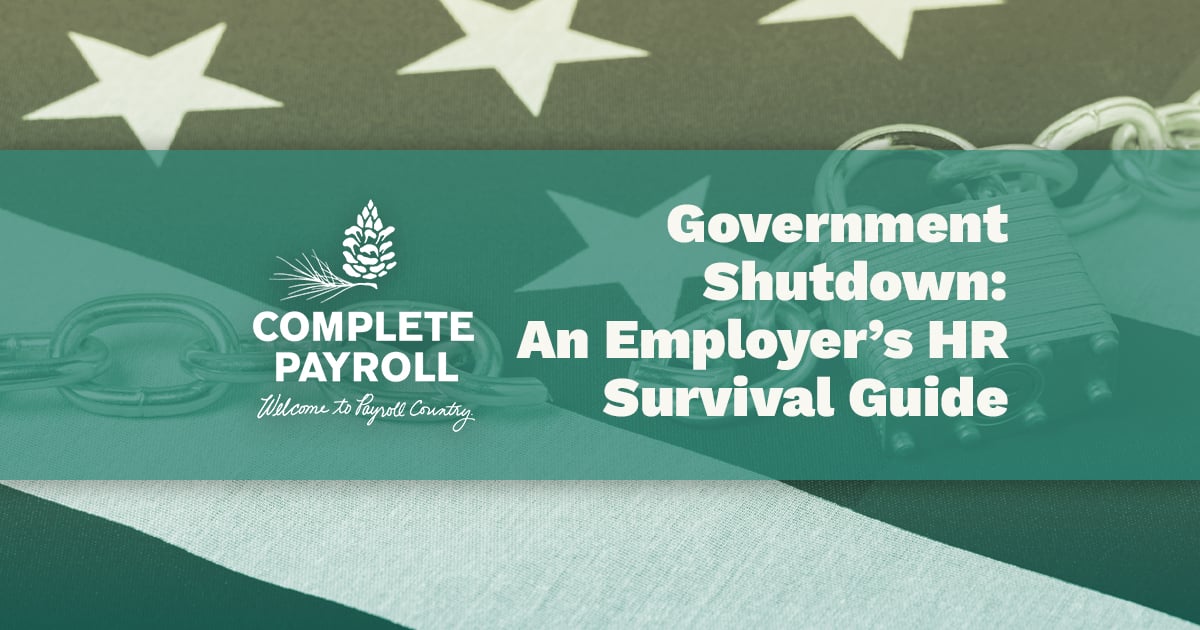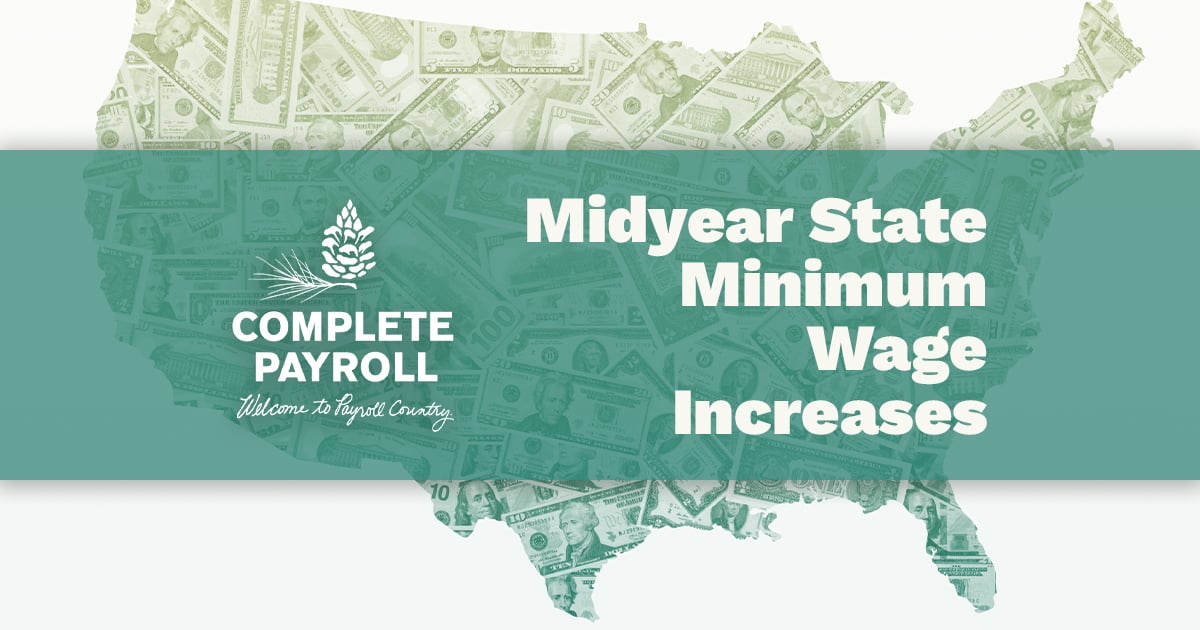
Periods of growth are particularly exciting for small and midsize businesses, but they also bring new HR challenges. Along with adding employees—which may change the feel of your culture as well as your floor plan—your organization may become subject to federal and state laws that take effect once you have a certain number of employees. Most employment laws apply to organizations based on the number of people they employ, so as you grow, it’s vital to keep up-to-speed on any laws that newly apply or will soon apply to your organization.
Federal Laws
To understand the scope of many of the federal laws discussed below, employers need to know the definition of discrimination. In the context of employment law, discrimination means taking any adverse (or negative) action against an employee. Adverse action includes but isn’t limited to the following:- Failure to hire
- Failure to train or offer an opportunity
- Failure to promote
- Failure to offer an accommodation required by law or offered to a peer
- Offering a lower wage or salary than to a peer
- Offering fewer benefits than to a peer (e.g. vacation, 401(k), bonuses, covered expenses)
- Taking more aggressive disciplinary action, including any of the above, than with a peer
- Reducing pay or benefits
- Transferring to a less desirable position, shift, or location
- Demotion
- Termination
Americans with Disabilities Act (ADA) – 15 employees
The ADA protects qualified individuals with disabilities from unlawful employment discrimination and requires an employer to make reasonable accommodations for disabled individuals unless doing so would place an undue burden on the employer.Title VII of the Civil Rights Act – 15 employees
Title VII prohibits discrimination on the basis of race, color, national origin, religion, and sex. Note that a number of courts have ruled that sex includes sexual orientation and gender identity, and the Equal Employment Opportunity Commission, which enforces Title VII, also operates as if sex includes sexual orientation and gender identity.Pregnancy Discrimination Act (PDA) – 15 employees
The PDA amended Title VII of the Civil Rights Act to specifically protect individuals from discrimination based on pregnancy, child birth, or any related medical conditions. It defines pregnancy as a temporary disability for which reasonable accommodations are required.Genetic Information Nondiscrimination Act (GINA) – 15 employees
GINA makes it unlawful for employers, employment agencies, unions, and training programs to discriminate against an individual because of genetic information. Genetic information most commonly comes to an employer as family medical history, but it also includes DNA information acquired through testing.Age Discrimination in Employment Act (ADEA) – 20 employees
The ADEA prohibits discrimination against those 40 and older as well as age preferences or limitations in both posting and practice. It forbids mandatory retirement ages except for certain executives and high policymakers who are over 65 and entitled to deferred compensation of a minimum dollar amount per year.Family and Medical Leave Act (FMLA) – 50 employees
FMLA allows qualified employees to take job-protected leave to care for themselves or a close family member with a serious health condition. It also prohibits discrimination or retaliation against employees for taking leave under the Act.Employer Mandate of the Affordable Care Act (ACA) – 50 full-time equivalents
The Employer Mandate requires employers with 50 or more full-time equivalent employees (30+ hours per week) to offer minimal essential health coverage at an affordable rate to all full-time employees.State Laws
Some states are heavy regulators (think West Coast and Northeastern states, in particular), while others are content to add little to what is required by federal law. The laws below are either relatively common or gaining steam in state legislatures, so they should be on your radar. The HR Support Center can help you learn about them and other applicable laws in the state or states you operate in.Additional Protected Classes – Varying employee counts
Many states have their own civil rights laws that looks much like Title VII, but often take effect at a lower employee count and include additional protected classes. Some of the most commonly added protections are for sexual orientation, arrest records, off-duty use of legal products, consumer debt garnishment, credit information, and marital status.Pregnancy Accommodation Expansions – Varying employee counts
These laws require that employers provide specific workplace accommodations, even if the employee isn’t suffering from a pregnancy-related disability. Many of the accommodations must be provided without a doctor’s note, such as additional food and water breaks, seating, and reasonable lifting restrictions. Employers may still ask for a note for other accommodations, such as flexible scheduling or light duty, but an employee will not need to prove that they are disabled. Employers do not need to provide accommodations if doing so would create an undue hardship, but the significant difficulty or expense standard for undue hardship is hard to meet.Paid Sick Leave – Varying employee counts
The paid sick leave laws passed so far share some common elements. Notably, employers are typically required to offer at least one hour of paid sick leave for every 30 or 40 hours worked, and employees can use their leave to care for themselves or a family member (most states also allow the time to be used in case of domestic or sexual violence). The laws vary most—though still not dramatically—with respect to which employees are eligible and when, and what kind of documentation can be required to prove that employees used the leave for a permissible purpose. Some states allow smaller employers to provide unpaid leave.Criminal History Inquiry Bans – Varying employee counts
Often referred to as “Ban the Box,” these laws prohibit employers from asking about criminal history either until an interview is scheduled or a contingent job offer is made to the candidate. There may also be specific notice requirements if an employer decides not to hire an applicant because of their criminal history.Salary History Inquiry Bans – Usually all employers
These laws prohibit employers from inquiring about a candidate’s current or previous wages, whether directly or through a third party. Some salary history inquiry bans are stand-alone laws, while others are part of larger equal pay acts.Social Media Privacy – Usually all employers
Most of these laws share some themes. First, they prohibit employers from requiring or requesting that employees or applicants disclose their login credentials. Second, the laws say employers can’t require or request that an employee or applicant access their personal social media in the employer’s presence or add the employer (or one of their employees) to their contacts or friends list. Third, the laws prohibit retaliation or failure to hire should an applicant or employee refuse such requests for access.


















 Get Instant Blog Notifications
Get Instant Blog Notifications


